Community & Giving
We are passionate about giving back and making a positive impact on the communities in which we live and work. Below is a list of local and national organizations we’ve had the privilege of getting involved with, whether through our time, resources or other forms of engagement.

Montreal General Hospital Foundation
Major donor to the Clinical Innovation Platform (CLIP).
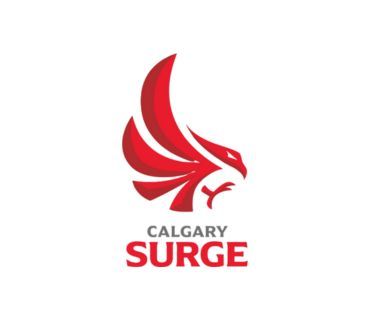
Calgary Surge
Official Wealth Management Partner of the Calgary Surge, a professional basketball team based in Calgary, Alberta.

Gordon Hoffman Charity Golf Tournament
Sponsor of the Gordon Hoffman Charity Golf Tournament. Proceeds of the tournament help children and their families affected by Learning Disabilities and ADHD in Calgary, ensuring they are able to access the programs and services needed for success.

Shaw Charity Classic Golf Tournament
Sponsor of the Shaw Charity Classic. The SCC is a professional annual golf tournament in Calgary that benefit charities, children, and families in Alberta and has raised more than $93 million for over 270 children and youth charities across the province.
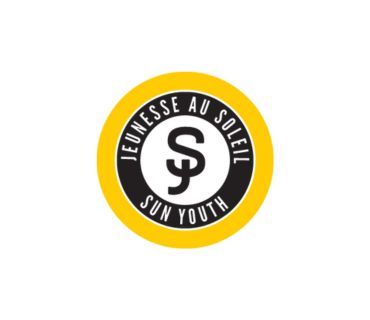
Sun Youth Organization
Every year, we host an annual holiday drive to collect food and new toys for children and families in need in Montreal.
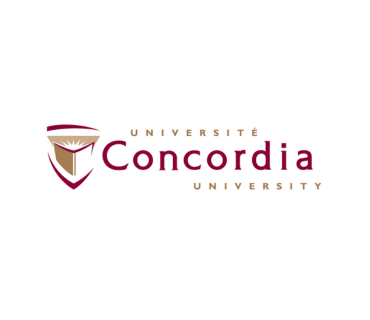
Concordia University
In-course scholarship established by RWM in 2023. This scholarship is intended to encourage and reward full-time JMSB students who identify as members of an underrepresented group.
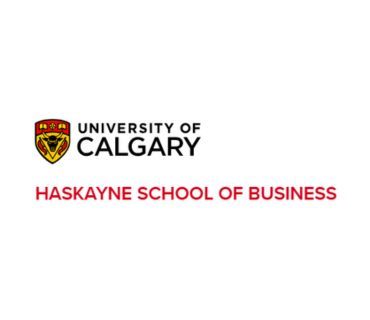
University of Calgary
The Rothenberg Wealth Management Award was established in 2023 to help remove the financial barriers for deserving students of color to pursue their education at the Haskayne School and focus on their studies.
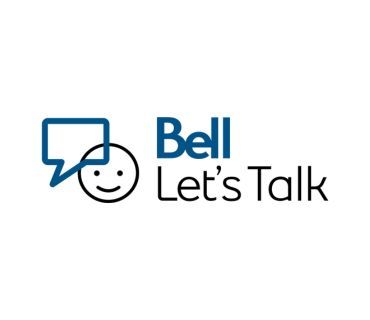
Bell Let’s Talk day

Brain Canada Foundation

Tribute To Dr. Mulder (2023)

Calgary Interclub Squash Association (CISA)
Proud Title Sponsor of the 2023/2024 Men’s Level 1 Final.
Rothenberg Gives Back

Tax season is here, yet again. If you’re a tax filing veteran, you’re likely comfortable filing your tax return yourself, without any help. There’s satisfaction in doing it yourself and as it turns out, you might even enjoy it.
Canadians still love their tax refunds, but with an increasing number of people missing refunds due to costly mistakes, you might be torn over whether you should go the do-it-yourself route or if now is the time to employ the services of a tax expert.
An error on your tax return can lead to a penalty, interest charges or even an audit by the CRA. Perhaps most importantly, however, you may miss out on valuable tax deductions or credits.
When To Do Your Taxes Yourself
Preparing your own tax return should be easy if your financial situation is simple. We’ll call these people Tax DIYers, where DIY stands for “Do-It-Yourself!”
TurboTax and other off-the-shelf tax preparation software options will walk you through a series of questions about your finances and alert you to any credits and deductions you may qualify for. They don’t require any math calculations or in-depth knowledge of the tax code.
But how do you determine if your position is simple?
- If preparing your taxes just requires you to pull information from a handful of documents prepared by others, such as the T4, you’ll find basic tax software suitable.
- If your tax situation hasn’t changed over the last year, you work for an employer, are single with no kids, etc., your tax return would be very straightforward.
- If nothing is going on in your life that can complicate your tax situation, it might not be worth paying a professional.
When to Hire a Professional
You might be better off hiring an accountant than trying to do your tax return yourself in some situations.
Tax preparers stay up to date on tax codes as well as provincial and federal tax laws.
An accountant can recommend what deductions and exemptions you qualify for and help you plan for future growth by informing you about any tax requirements changes.
Hire a tax expert in case of:
1. Major Life Changes
If you recently got married (congratulations), you might need a professional to guide you on the tax filing status to use. While most couples prefer filing jointly, there are some situations where it makes more sense to file separately.
It’s not just marriage. Other life milestones like expanding your family and having a child, losing or getting a new job, graduating from college and relocating could all impact your tax return and your potential total refund.
An accountant can help you learn about any new benefits or tactics to minimize your tax liability. This way, you will be able to take advantage of every tax break available to you.
A tax professional can also help you learn to navigate your tax return this year, so you feel confident doing it yourself in the future. You can always revert to doing your own taxes if you don’t experience any other major life changes the next year.
2. Failing to Pay in the Past
If you failed to file necessary tax returns in the past years, reach out to a tax expert.
They know about the programs offered by the CRA for individuals in this situation. A tax accountant can help you file years’ worth of returns, something that might take you a long time to master, especially as the April 30 tax filing deadline approaches.
This gives you confidence that your tax return is filed correctly and the peace of mind that you’re in good standing with the CRA.
3. Owning a Business
If you are a business owner, you should probably consider hiring an accountant to prepare your tax return.
Almost every financial transaction comes with some kind of tax consequence. Your accountant will prevent you from making any costly mistakes, help you report tax items accurately, and maximize deductions.
You should also use a tax preparer if you purchased rental property during the year.
4. Simply Not Having the Time
Tax preparation involves gathering documents, reviewing the procedures, and filling out tax forms. It is a notoriously slow and boring process, which is why so many of us dread it and postpone it until the last minute.
While doing this might seem like a simple weekend project for some Canadians, for others, not so much. Maybe you feel that the time you’d spend doing your taxes would be better spent elsewhere.
Consider hiring a tax expert if you lack the time or patience to prepare your own return.
In Conclusion
There is no universally correct answer when it comes to filing your taxes with software versus hiring an accountant or tax professional. Ultimately, the choice comes down to the complexity of your tax situation.
If your tax situation is fairly straightforward and you have some confidence in your ability to work step-by-step through tax software, it’s relatively cheaper to do your own taxes this way.
If your tax situation is more complicated, hiring a tax preparer can be worth the expense. Just ensure the preparer has the right credentials and stellar testimonials to avoid being a victim of tax scams.
Over to You…
The official deadline to file your Canadian personal income tax return for 2025 and pay any taxes owed to the Canada Revenue Agency (CRA) is April 30, 2026.

As we welcome a new year, it’s the perfect time to revisit your financial goals, take advantage of updated contribution limits, and ensure your long‑term strategy still aligns with life’s evolving priorities. With new TFSA and RRSP limits in effect for 2026, it’s an ideal moment to reflect, reset, and reconnect with your Rothenberg wealth advisor.
1. 2026 contribution limits
TFSA Limit: $7,000 for 2026
The Tax‑Free Savings Account (TFSA) contribution limit for 2026 remains $7,000, matching 2024 and 2025. For Canadians who have been eligible since TFSAs were introduced in 2009, this brings the total cumulative room to $109,000.
RRSP Limit: $33,810 for 2026
The Registered Retirement Savings Plan (RRSP) 2026 contribution limit has increased to $33,810, up from $32,490 in 2025.
These limits give you the flexibility to grow wealth, either tax‑free (TFSA) or tax‑deferred (RRSP), as part of a thoughtfully structured financial plan.
2. A new year is the perfect time to reassess your goals
Financial planning isn’t static. As life evolves, so should your financial and investment strategy. Early in the year is an excellent opportunity to check whether your goals and contribution plans still make sense.
Here are some life changes that may prompt a review:
Career changes or promotions: Higher income may increase your RRSP contribution room and alter your tax planning needs.
Buying a home: You may need to reprioritize savings between RRSPs, TFSAs, and other accounts.
Growing your family: New dependants often mean updated insurance needs, RESP planning, and adjustments to cash flow.
Retirement planning updates: As you get closer to retirement, your investment strategy and RRSP withdrawal plan may shift.
Changes in financial priorities: New goals, such as starting a business, planning a major purchase, or taking a sabbatical, may require a refreshed approach.
Significant family events: a change in family circumstances or receiving an inheritance may alter financial priorities and require revisions to savings strategies and estate planning.
With contribution limits resetting and life changes potentially altering your financial picture, early-year planning helps you stay ahead rather than reacting later.
3. Why meeting with your wealth advisor matters now
Understanding contribution limits is important, but integrating them into a long‑term plan is where the real value lies. A Rothenberg wealth advisor can help you:
- Maximize both TFSA and RRSP opportunities
- Align savings strategies with life changes
- Avoid over-contribution penalties
- Build a personalized investment plan that supports your evolving goals
As contribution room for both accounts resets each January, now is the ideal moment to set up a review and ensure you’re making the most of the year ahead.
Start the Year Strong
2026 brings fresh opportunities, expanded contribution limits, and a natural moment for reflection. Whether you’re adjusting to new life circumstances or simply fine-tuning your long‑term goals, revisiting your financial plan now can set you up for a more confident and successful year.
If you’re ready to make the most of the new year, book a time with your Rothenberg wealth advisor to review your goals and set yourself up for a successful year ahead.

As the year draws to a close, it’s the perfect time to review your finances and ensure you’re taking advantage of every opportunity to save. A year-end financial checklist can help you optimize tax credits, deductions, and benefits before the deadline. Here are key items to consider:
Pension income splitting — Those who receive a pension may be eligible to split up to 50% of eligible pension income with a spouse
Guaranteed income supplement — If you received the guaranteed income supplement or allowance benefits under the old age security program, you can renew the benefit by filing by the deadline.
Registered retirement savings plan (RRSP) — You have until December 31 of the year in which you turn 71 to contribute to your RRSPs.
Goods and services tax/harmonized sales tax (GST/HST) credit — You may be eligible for the GST/HST credit, a tax-free quarterly payment that helps offset all or part of the GST or HST you pay. To receive this credit, you must file an income tax and benefit return every year.
Medical expenses — You may be able to claim eligible medical expenses that you paid, provided the expenses were made over the 12-month period ending in 2024 and were not previously claimed. This can include amounts claimed for attendant care or care in an establishment.
Age amount — If you are 65 years of age or older on December 31, 2025, and if your net income was less than $102,925.
Pension income amount — You can claim up to $2,000 if you report eligible pension, or annuity payments on your tax return.
Registered disability savings plan (RDSP) — This savings plan can help families save for the financial security of a person who is eligible for the disability tax credit. RDSP contributions are not tax deductible and can be made until the end of the year in which the beneficiary turns 59.
Disability amount — If you, your spouse or a dependent have severe and prolonged impairments in physical or mental functions and meet certain conditions, you may be eligible for the disability tax credit (DTC).
Family caregiver amount — Those caring for a dependent with impairment in physical or mental functions may be able to claim up to $2,616 when calculating certain non-refundable tax credits.
Tax-Loss selling – Tax-loss selling can be a valuable strategy. For more details, check out our recent article on this topic: Potentially lower your taxes with tax-loss harvesting – Rothenberg Wealth Management
Taking time now to review these opportunities can help you reduce your taxes and maximize benefits. If you’re unsure which credits apply to you, contact your Rothenberg Wealth Management advisor for personalized advice.

When building a portfolio that generates income, Canadian investors often weigh the benefits of dividend-paying investments, interest-bearing assets, and capital gain opportunities. While all three can contribute to overall returns, their tax treatment, growth potential, and strategic advantages differ significantly.
What is interest income?
Interest income is earned from fixed-income investments such as:
- Guaranteed Investment Certificates (GICs)
- Bonds
- High-interest savings accounts
Interest income is taxed at the investor’s full marginal tax rate, making it the least tax-efficient form of investment income in non-registered accounts.
Despite its tax inefficiency, interest income has its place. It offers predictable returns, ideal for conservative investors or short-term goals.
Example: John earns $1,000 in interest from a GIC. At a 30% tax rate, he owes $300 in taxes.
What is dividend income?
Dividend income is earned when publicly traded companies distribute a portion of their profits to shareholders. These dividend payments can be made monthly, quarterly, semi-annually or annually, depending on the company.
Your dividends are taxed differently depending on whether they are eligible or noneligible.
Eligible Dividends
- An eligible dividend is a type of dividend that Canadian corporations can pay to shareholders, which qualifies for a preferential tax treatment under Canadian tax law.
- It is paid by Canadian public or private corporations from income that have already been taxed at the general corporate tax rate.
- These dividends are “grossed up” by 38% to reflect the tax already paid by the corporation. This means the amount added to your taxable income is higher than the actual dividend received.
- After gross-up, a federal dividend tax credit is applied to reduce your personal tax liability, so you ultimately pay less tax than you would on a non-eligible dividend.
- Your T5 slip will show you if it is an eligible dividend.
Non-eligible dividends
- Typically paid by small businesses from income taxed at the lower small business tax rate.
- These are grossed up by 15%, reflecting the lower corporate tax paid.
- A smaller dividend tax credit is applied, but it still helps reduce the overall tax burden.
Important Notes
- Foreign dividends do not qualify for the dividend tax credit.
- The dividend tax credit varies by province, so your location affects how much tax you save.
Example: John receives $1,000 in eligible dividends:
- Grossed up: $1,000 × 1.38 = $1,380
- Tax owed: $1,380 × 30% = $414
- Tax credit: $1,380 × 15% = $207
- Final tax: $414 – $207 = $207
What are capital gains?
Capital gains refer to the profit made from selling a capital asset such as a stock, bond, real estate and other investment for more than its original purchase price, also known as its adjusted cost base (ACB).
As of 2025, the capital gains inclusion rate is 50%, meaning:
- Only half of your capital gain is added to your taxable income.
- That amount is then taxed at your marginal income tax rate (federal + provincial).
Example: John sells a stock for $30,000, originally bought for $15,000.
- Capital gain: $15,000
- Taxable portion: $15,000 × 50% = $7,500
- Tax owed: $7,500 × 30% = $2,250
Final thoughts
Keep in mind that dividend, interest, and capital gains income can grow tax-deferred in an RRSP or tax-free in a TFSA. These registered accounts offer powerful tools for maximizing your investment returns while minimizing your tax burden.
For Canadian investors focused on tax-efficient income, dividend-paying investments often deliver greater long-term value. However, the most effective strategy considers your risk tolerance, investment timeline, and account type.
At Rothenberg Wealth Management, we’re here to help you build a portfolio that aligns with your financial goals and optimizes your after-tax returns. A balanced approach that incorporates all three income types, dividends, interest, and capital gains, can help optimize your portfolio for both growth and tax efficiency.
Want to see how different types of investment income are taxed?
Try our Taxes and Investment Income Calculator for a quick comparison: Taxes & Investment Income – Rothenberg Wealth Management
